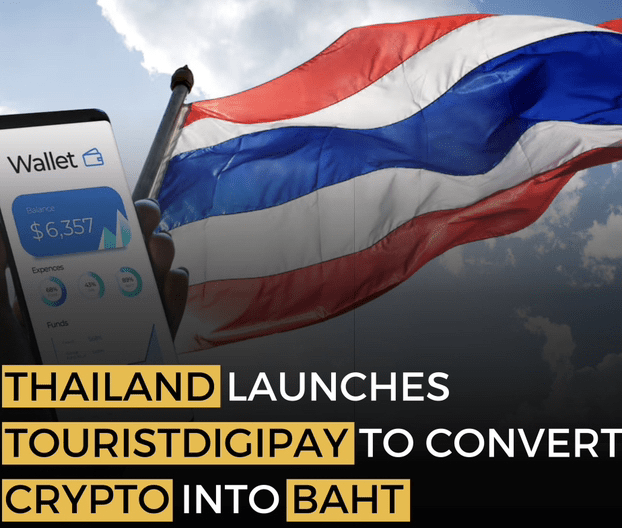
Thailand has launched the TouristDigiPay program, a new initiative that enables international visitors to use their digital currencies for local payments.
The initiative, directed by the Thai Securities and Exchange Commission, operates in a regulatory sandbox environment with strict rules for identity verification and anti-money laundering.
This move comes after Thailand's pro-cryptocurrency policies, such as legalizing stablecoins and providing tax exemptions for digital currencies.
Thailand launches a new digital payment initiative to facilitate the use of cryptocurrencies by foreign visitors while in the country.
The TouristDigiPay program allows tourists to convert digital assets into Thai Baht for quick payments via QR code at participating merchants.
Thailand launches a digital wallet to boost tourism supported by digital currencies.
According to The Nation report, this move aligns with broader efforts to boost tourism and stimulate the local economy through regulated digital financing.
The Thai Securities and Exchange Commission (SEC) has directed the initiative and explored how to enhance digital assets for tourism-related spending.
Under this program, foreign visitors must open accounts with approved digital asset and electronic money providers. These accounts will convert cryptocurrencies like Bitcoin into Baht for local spending.
The program will operate in a regulatory sandbox environment to ensure monitoring and strict adherence to Know Your Customer (KYC) and Anti-Money Laundering (AML) standards.
As part of the initiative, electronic money providers will issue a dedicated tourist wallet. The wallet will enable seamless currency conversion and may be linked to foreign debit and credit cards.
At the same time, the government will impose spending limits to prevent misuse. Larger merchants with card processing terminals can handle up to 500,000 Baht monthly, while smaller merchants face a limit of 50,000 Baht.
However, this move is not surprising, as the tourism sector in Thailand is one of the primary sources of revenue for the Asian country.
Government spokesperson Saseekan Watanachand revealed that the country welcomed approximately 20 million international visitors between January and August. Notably, this generated about $26.25 billion in revenue for the country.
As a result, the Thai government aims to attract more international tourists to its shores and reaffirm its ongoing support for regulated cryptocurrency operations.
In recent months, Thailand has increasingly embraced cryptocurrencies by allowing the use of stablecoins like Tether (USDT) and USDC for commercial use. Additionally, the government recently issued a five-year personal tax exemption on profits from the sale of digital assets, effective from January 2025 to December 2029.
#اخبار_العملات #اخبار_مالية #اخبار_اقتصادية #اخبارالعملات #BinanceSquare
